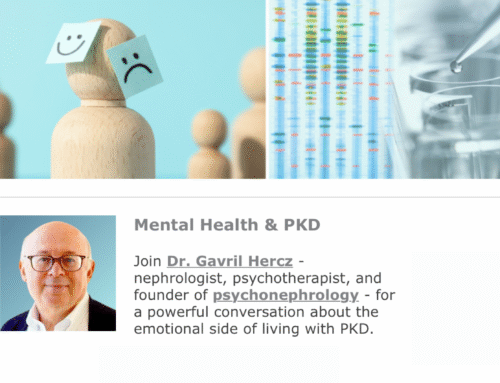
Quality of Life Progression during Dialysis Initiation
The Importance of Resilience and Social Support
Dialysis initiation is often associated with emotional distress, involving both patients and their families. Many aspects of these dynamic changes can be appreciated by evaluating different quality of life (QOL) parameters. Repeating the same measurements over periods of time, in the same patients, can provide useful information on how impactful this period is. As well, focusing on internal and external resources may predict which patients are at greater risk of distress and, more importantly, possible interventions to mitigate these disturbances.
We are happy to announce that our research on “Quality of Life Progression during Dialysis Initiation” was selected for a poster presentation at the annual meeting of the American Society of Nephrology on Saturday, Nov 19, 2016
Our study involved 54 stable patients followed in the predialysis clinic (48% with diabetes mellitus, average age 65). The patients had the following quality of life assessments:
- KDQOL – 36 (Valid, reliable, frequently used measure of QOL, higher scores indicate better functioning)
- The 5 subscales :
- Physical Component Summary
- Mental Component Summary
- Burden of Kidney Disease
- Symptoms & Problems
- Effects on Daily Life
- Connor-Davidson Resilience Scale (CD-RISC)
- Resilience is viewed as a measure of stress coping ability; the ability to “bounce back”
- Higher scores reflect greater resilience
- Distinguishes between those with greater and lesser resilience
- Resilience is modifiable and can improve with treatment, with greater improvement corresponding to higher levels of global improvement
- PROMIS
- Uses a variety of instruments to measure health outcomes from patient’s perspective, comparable across many chronic conditions
- PROMIS Instruments Selected
- Global Health (Comprised of Global Mental Health and Global Physical Health)
- Emotional Support
- Cognition
These QOL assessments were repeated in the same cohort of patients 26.1 weeks prior to and 2.7 weeks, 14.9 weeks after dialysis initiation. To evaluate the possible impact of internal (resilience) and external (emotional support) resources on QOL changes we differentiated between High and Low scorers:
- Resilience – differentiation cut-off point was 85 (median score)
- Emotional Support – differentiation cut-off point was 24 (median score of all scores, excluding those scoring maximum of 60)
As can be seen in the graphs, there was a significant change in the quality of life measures, declining on starting dialysis but with recovery, in most patients, at the second assessment 3 months later. As well we demonstrated that patients with higher resiliency and emotional support scores did better during this transition, with a reduced decline in the various quality of life measures.
We can conclude that dialysis initiation is associated with a high degree of emotional turbulence. Patients, however, are highly resilient, recovering back to their baseline after a period. The demonstration of the positive impact of resiliency and emotional support in blunting these declines raises the importance of focusing on these 2 modulators and how to enhance their presence in our patients’ lives.
You can download the poster in the PDF format here
About the Author
Dr Gavril Hercz
Dr. Gavril Hercz is a nephrologist at Humber River Health and Associate Professor of Medicine, University of Toronto. He completed his psychoanalytic training at the Toronto Psychoanalytic Institute and is a member of the Canadian Psychoanalytic Society. His major area of interest is the impact of physical illness on patients, families, and caregivers.
The Importance of Resilience and Social Support Dialysis initiation is often associated with emotional distress, involving both patients and their families. Many aspects of these dynamic changes can be appreciated [...]




